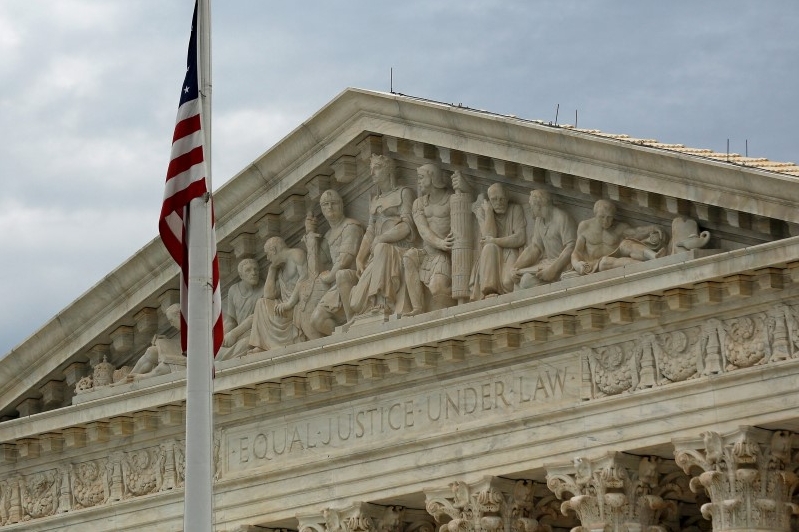
As the U.S. Supreme Court prepares to hear its first abortion case in nearly a decade, both sides have been quietly gathering vivid personal accounts from women to supplement the dry legal arguments, believing the effort could appeal particularly to swing-vote Justice Anthony Kennedy.
The case, which arises from a challenge to new Texas regulations covering clinics and physicians that perform abortions, could have broad political repercussions in a presidential election year. Depending how the nine justices rule, the court could embolden - or discourage - other states in imposing regulations affecting women's access to abortion.
A ruling in the dispute over the socially and politically contentious issue of abortion rights is expected by late June.
Some opponents of abortion are seizing on past comments by Kennedy, who has said that some women come to "regret" the procedure and, while affirming a right to abortion, has voted for certain regulations governing the procedure. Seeking to bolster the argument for Texas's strict requirements, they are signing up women who say they suffered medical complications.
The group of health clinics challenging the state, meanwhile, is trying to counter any perception of abortion as an option used only by the young and inexperienced.
Taking a page from the successful approach of gay-marriage proponents, they have sought lawyers and other professional women who say abortions helped them for economic, medical or other reasons. They hope the vignettes from lawyers will help justices identify with their view.
The diverging experiences will emerge in "friend of the court" briefs - the clinics' set due on Jan. 4, the Texas state government's set on Feb. 3.
The briefs, known as amicus curiae, are compiled to represent the broader outside interests at stake in a case, and are rarely so devoted to personal narratives.
The disputed Texas law requires clinics that perform abortions to have hospital-grade facilities and clinic doctors to obtain admitting privileges at a local hospital.
The clinics challenging the regulations as an unconstitutional burden on women say Texas is using costly, needless requirements to shut down facilities and restrict access to the procedure. Texas counters that it is safeguarding women's health.
The Center for Reproductive Rights (CRR), a New York-based non-profit group, is representing the clinics in the case of Whole Woman's Health v. Cole. Texas's legal strategy is being coordinated in Austin by state Solicitor General Scott Keller, who worked as a law clerk to Kennedy in 2009-2010.
Texas and CRR lawyers would not comment before filing deadlines on details of their respective briefs.
PERSONAL NARRATIVES
For months CRR lawyers have been reaching out for personal testimonies through emails and phone calls, according to women who have been contacted in Texas and elsewhere.
Former Democratic Texas state senator Wendy Davis, who led a filibuster against the abortion legislation in 2013 and revealed her two abortions in a memoir a year later, said she was asked in August to join a brief of public officials. She agreed.
Davis terminated two pregnancies in the 1990s for medical reasons. "Did I grieve tremendously? Yes, I did, in an indescribable way," she said in an interview with Reuters. "But never did I regret it."
Heather Busby, director of NARAL Pro-Choice Texas in Austin, provided her story for a brief to be filed on behalf of lawyers who had abortions. She said she often wonders whether she would have finished college and gone to law school if she had not ended an unwanted pregnancy at age 22, two decades ago.
Among those preparing briefs to support Texas is lawyer Allan Parker of the San Antonio-based Justice Foundation, which runs an "Operation Outcry" website asking women to sign declarations labeled "How My Abortion Hurt Me."
Parker said many women will not be fully identified in the filing, such as a Cindy H., who lived in Texas and now resides in Washington state.
She told Reuters her uterus was punctured during an abortion in the 1990s in a Texas clinic and she began hemorrhaging. "I thought I could have bled to death," she said.
Separately, Cindy Collins, an outspoken anti-abortion advocate in Louisiana, said she will be lending her full name to that brief about the harms of abortion.
Disputes over abortion rights, like gay marriage, have come down to Kennedy, a 1988 appointee of Republican President Ronald Reagan. Kennedy tipped the balance to the liberal side in gay marriage disputes in 2013 and 2015, notably in last June's landmark ruling for a nationwide right to same-sex marriage.
Over a series of decisions, Kennedy moved consistently toward greater protection for gay men and lesbians. On abortion rights, his record has not been as predictable.
Based on their records, the current four conservatives are likely to favor the Texas law; the four liberals are likely to reject it.
The last time the Supreme Court heard an abortion case, in 2007, Kennedy cited a friend of the court brief from women who said they regretted going through with the procedure.
"While we find no reliable data to measure the phenomenon," Kennedy wrote, "it seems unexceptionable to conclude some women come to regret their choice to abort the infant life they once created and sustained."






